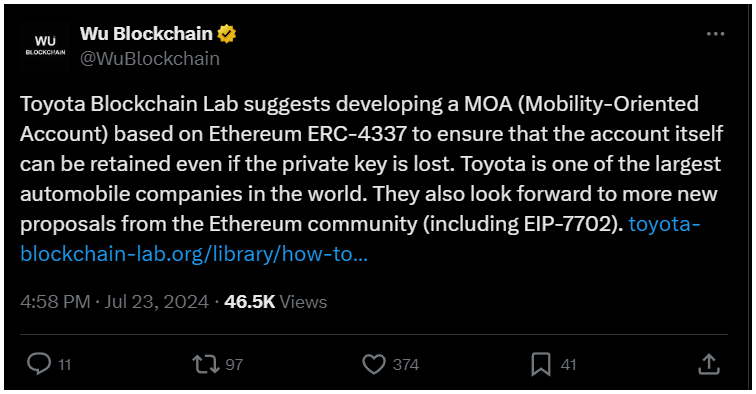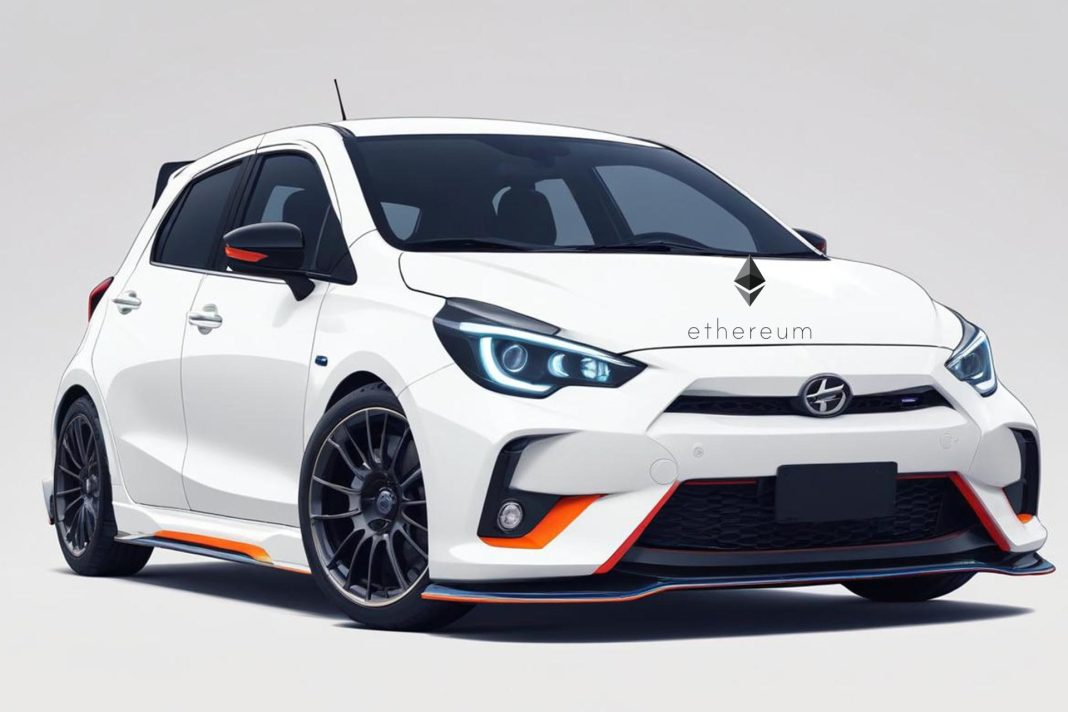Toyota is exploring the use of the Ethereum blockchain to create digital accounts for its cars, which could pave the way for fully autonomous driving.
This idea is part of Toyota’s Mobility 3.0 concept, introduced last week.
Progress
The plan involves creating Mobility-Oriented Accounts, MOAs for vehicles on the blockchain, and these digital accounts could enable cars to operate independently as service entities.

Toyota’s blog post suggests that this could lead to fully autonomous driving in the future, where cars function without human input and manage all rights and operations through the blockchain.
How MOA works
Toyota is considering using the Ethereum standard ERC-4337 to design these MOAs, as this standard allows a blockchain account for a car to remain secure even if the private key is lost.
By separating authentication from key management, account abstraction ensures the account’s safety and flexibility. Based on the expectations, using Ethereum can make managing car information, like usage history, more transparent and efficient.
ERC-4337 also supports setting an address deterministically before deploying the account, helping integrate current vehicle ID systems with blockchain addresses.
Toyota proposed a key token concept compliant with the NFT standard, which would hold car owner information and usage rights.
By linking car access to NFTs tied to MOA, permissions can be easily controlled by transferring these NFTs.
This approach simplifies managing usage rights digitally, making it easier to develop services like car sharing.
Inner fire
Toyota’s Blockchain Lab, a virtual organization within the Toyota Group established in 2019, was the first who proposed the MOA project.
The potential use of blockchain in vehicles is aligned with Toyota’s reputation, as trend-setter and innovator within the automotive industry.


